Volunteering abroad can be an incredible and rewarding experience. Follow these guidelines to learn how to volunteer abroad ethically, in a responsible way.
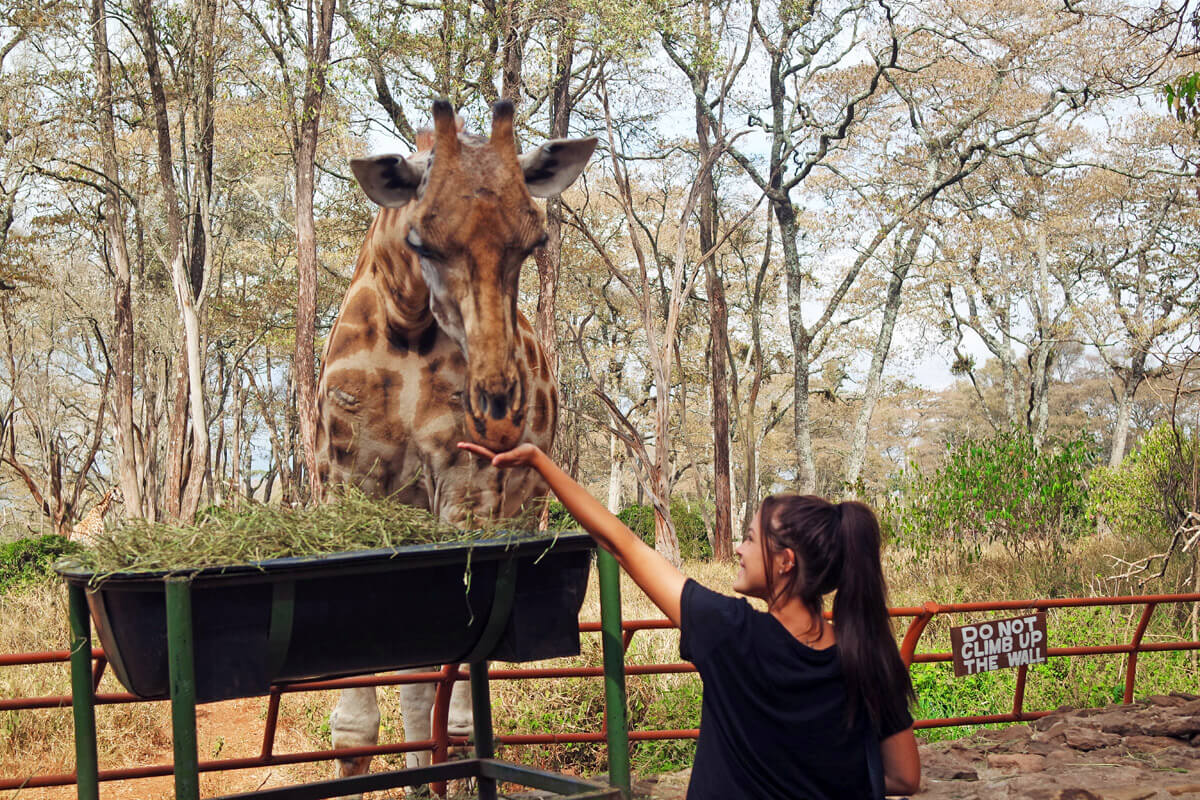
Volunteering abroad sounds like a great way to experience another culture and give back while doing so. But truth be told, not all volunteer opportunities are good ones. And if you don’t do your research — like really do your research — your volunteer efforts can bring more harm than good to the community you are supposedly helping.
There is a trend called “voluntourism” where well-meaning volunteers come into a place in need, do some work, take photos to post on Instagram, and then they leave after a week or two.
There are some shady organizations that capitalize on this desire to help, and before long it becomes a money-making venture rather than a way to truly make a positive impact.
And the cycle looks like this:
Volunteers start to take jobs that local people could be doing, and are sometimes allowedto perform tasks for which they are not trained and would never be able to do in their home country. Communities they work with have to deal with a constant stream of people coming in and out, and never see much improvement in their situation.
This cycle continues and in order to keep attracting volunteers, the organization needs to maintain a level of need. This means entire communities are sometimes kept in a state of poverty in order to attract overseas volunteers, aka “poverty porn”. And likewise, animals aren’t released into the wild, but instead are kept in captivity.
Learn more: If you want to become more educated on this subject, check out the Instagram account @BarbieSavior which both hilariously and painfully depicts the “white savior” mentality.
All this said, there are good organizations out there. And it is natural to want to do something meaningful on your travels. I get that. And this article will help you navigate how to choose an ethical volunteer program. But I hope this rant-like intro serves as a warning that volunteering abroad is a big responsibility, and choosing a program shouldn’t be taken lightly.
Before volunteering, ask yourself why you want to volunteer. Our friends from Two Dusty Travelers have a great checklist of questions that really dig deep into finding your motivation behind wanting to volunteer.
One question that I think is particularly interesting is asking yourself, “Would I still want to volunteer if I couldn’t take any photos to share?” If your primary reasons come down to having a meaningful experience and photos to share, you probably are doing it for the wrong reasons, as it all comes back to what YOU get out of it instead of those with whom you’re working.
Alright, now that we’ve gone through some of the heavy stuff, let’s discuss how you can find an ethical volunteer program where you can truly make a positive impact instead of contributing to a broken cycle.
Guest Author: Kirsten Carter
Kristen from Right Minded Traveler has volunteered around the world and has put together some tips in this guest post to help you navigate this space and choose an ethical volunteer program.
Without further adieu — I could go on and on about this topic! — Kristin is going to share her experience and tips… And I pop in every so often to add some important points as well.
Why Volunteer Abroad?
Volunteering abroad is a purposeful opportunity when done in a responsible way. The experience can provide you with a unique perspective, and it also looks good to universities and on your resume!
I’ve always felt volunteering can give a sense of purpose and value to my travels.
When volunteering abroad is done in a sustainable way, it can have a compounding effect and influence many other positive outcomes for that project.
The Importance of Making Sure you Choose an Ethical Program
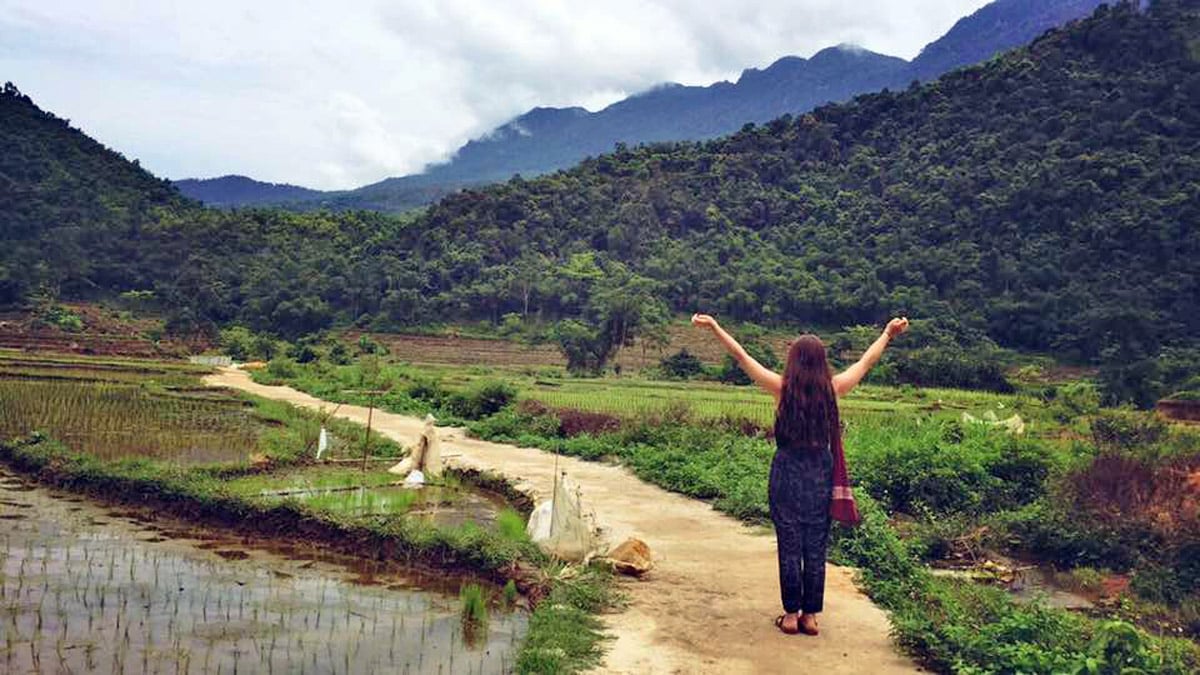
It’s incredibly important to make sure that when you choose to volunteer abroad, whether in conservation, wildlife, communities, animals, children, medicine, or construction, that your program is one that meets certain standards of ethics. If you don’t do your research beforehand, you may end up contributing to funding a harmful project and the promotion of unethical volunteering.
Volunteering with Wildlife
For example, unethical volunteering with wildlife is becoming extremely popular lately. And a lot of it comes down to social media. Social media gives us the opportunity to see unbelievable photos of wild animals up close. After all, who doesn’t want to help save baby elephants from the circus or volunteer helping rehabilitate injured cheetahs?
However, many wildlife volunteer programs are unethical. This is due to the fact that these animals were born wild, which means that while in captivity they’ve been forced into domestication to some degree.
This isn’t always the case. In fact, there are some sanctuaries where animals have actually been rescued from places that are funded by wildlife volunteering. Ethical wildlife projects tend to involve little contact with the animals themselves and have more to do with the care of their habitat.
Volunteering with Children
Another example of the importance of choosing an ethical volunteer experience is the negative effects it may have on the beneficiaries of the cause.
In this case, the children in orphanages around the world who accept volunteers. The popularity of orphanage volunteering continues to grow. However, there are some projects that exploit the volunteers’ efforts and pocketbooks to line their own pockets.
An example would be a $3,000-per-week volunteer program with children in an orphanage in Cambodia. This is simply not reasonable given the cost of living in this part of the world.
Often times in these situations, volunteers don’t need childcare experience to participate in these programs. But more often than not, you’ll be contributing to the cycle of abandonment that these children endure every week with different volunteers. On top of that, it is very common for these children to have one parent who is still alive that the organization fails to mention, all in the effort to make money.
If you still want to be involved in volunteering with children, you should consider volunteering for family reunion programs. You should also make sure you have ample time when working with children.
Popping in for a day, or even two weeks, isn’t going to help you gain a lot of trust. Realistically, you aren’t going to be able to do a lot of sustainable work in that period of time.
For every unethical volunteer experience we take part in or help to fund, we are giving money and motivation to the tour companies, organizations and places that sell these unethical experiences. Not only are we damaging the idea of volunteering, but we are encouraging other unethical projects to pop up because we have created a demand for this type of experience.
Looking for more ways to make an impact with travel? Check out our resources page on Responsible Tourism. It’s packed with resources to help you manage your global footprint and stay ethical while traveling.
How to Ensure Your Volunteer Program is Ethical
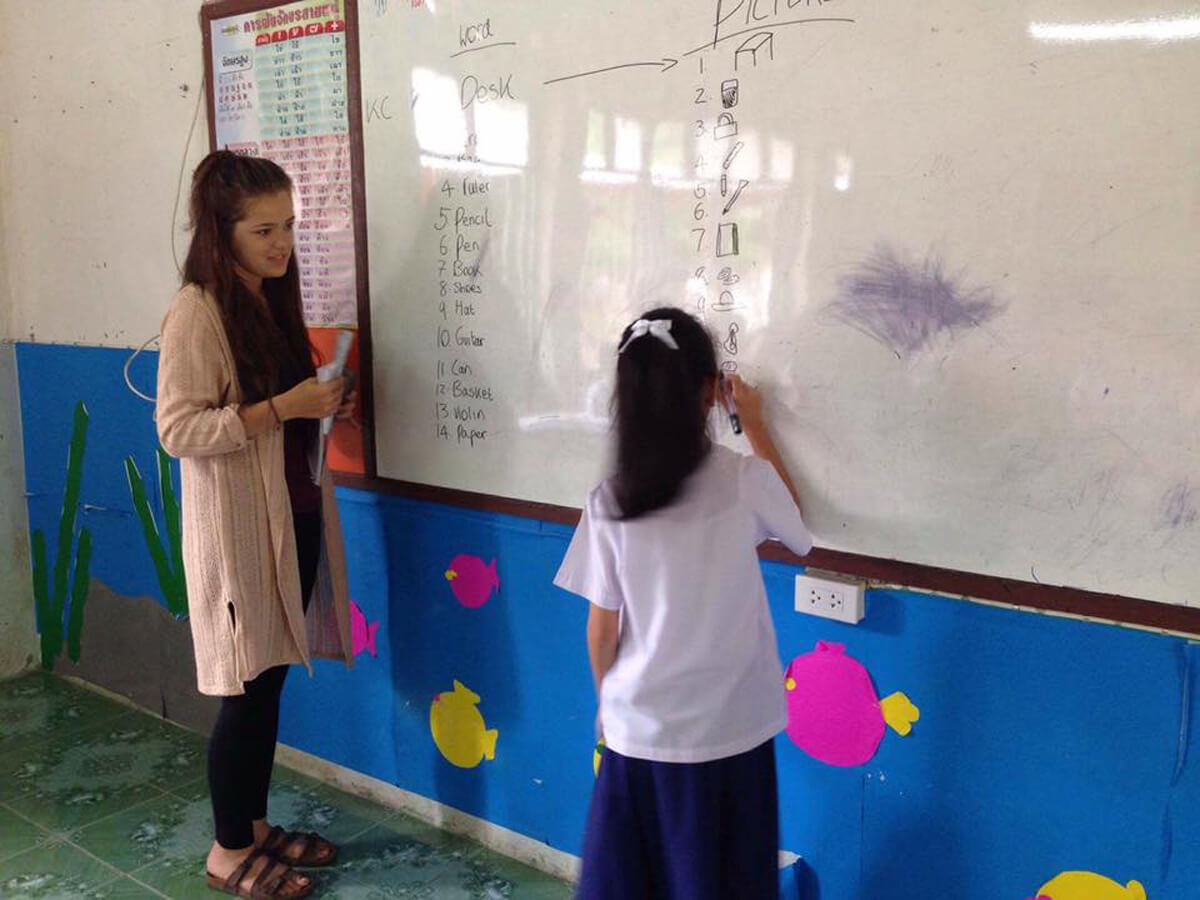
Now I’m sure after reading all of this you are thinking, “How on earth do I know which volunteer programs are ethical and which are not?” It can be difficult to filter through sometimes, but I’m going to go over some major things to consider that will help you sort through the duds and find some truly great programs.
Unethical volunteering programs can be masterminds of manipulating people into signing up for these voluntourism projects which tend to benefit you more than the cause.
This is particularly the case for the companies that promote volunteering on gap years or summer abroad programs, as they quite often exploit people’s eagerness to do something good for the world. Sad, right?
Here are a few ways to ensure a program is ethical:
-
Duration – The volunteer program should be offering placements that are a month or longer. If the program is less than a month, you really should not have a role working with people. It is not a healthy model for volunteers to constantly be coming and going.
-
Contact previous volunteers and read feedback – Don’t be afraid to do some internet-stalking and find previous volunteers. Ask about how their experience was, and if it was rewarding? Do they feel like what they did was a benefit to the cause? An ethical volunteer program will always provide you real experiences from previous volunteers, or be happy to put you in contact with them.
-
Are there local people involved? A good volunteer program will always involve locals as this is a sustainable solution for when there are no volunteers. This also makes sure your work is valued by the local community, rather than something you are doing just “for the sake of it.” Try to always look for grassroots organizations to volunteer with.
-
Ask for a breakdown of the volunteer program cost – Ask WHERE the money goes. Most volunteer programs will actually be more than happy to provide this information. This will help ensure your money really is going towards the cause and not just for the benefit of the company.
-
Are you qualified? An ethical volunteer organization will never allow volunteers perform tasks for which they are not trained. There is a fine line because while you may never have planted corn, it is possible to give you training in this. And the repercussions are not too great if you make a mistake. However, volunteers who have no medical training should NEVER be allowed into a medical space. It is not only dangerous (duh!), but think about it this way: You’d never allow an untrained volunteer into your own doctor’s office, would you?! Hell no. If a volunteer organization allows you to do task that you are obviously not qualified for, this is a big old red flag.
-
Support and training – Any good volunteer program whether with animals, people or the environment will be there to support you before, during and after.
-
Vetting process for working with children – If you are volunteering with children, make sure there’s a vetting process. If the program is an ethical one, they will do this as a protocol to make sure you are fully informed before you start your volunteer work.

The warning signs/ What you should look out for:
-
The cost – Now you may be thinking, “Why would I pay to volunteer anyway?” and it’s true! There is actually a number of placements where you can volunteer abroad in exchange for accommodation, such as HelpStay. A number of programs also ask for a placement fee and a small donation. This is normally an expected occurrence but the price should never be too high.
-
No progress – An ethical volunteer program will have statistics on how volunteering has improved their project. Has literacy risen? Have animals been release into the wild? Have local businesses seen success? Has poverty dropped? They will also have feedback and reports of how things have changed year-over-year. It’s a big red flag if you see a program that doesn’t provide this basic information.
-
The ultimate goal of an ethical volunteer organization should be to eventually no longer need to exist. Read that again and really think about it. The goal should be to train locals to take the jobs of volunteers so they are empowered to improve their own community from within. The goal should be to release animals into the wild (when possible).
-
-
A local could be doing your job – One major problem with volunteer programs is they take jobs away from locals, which would be a much more sustainable way to run things. If you, as an outsider, are not bringing anything to the table that a local couldn’t you may want to reconsider this program.
-
It’s more about YOU than the community involved – When researching about gap-year volunteer programs or summer volunteer abroad programs you might find a lot of, “It will change your life,” and “An experience YOU will never forget!” kind of language. These are warning signs. A volunteer placement that is ethical will have more to say about the potential beneficial impacts you will be making on the cause, not on yourself.
-
They don’t want to get to know you – When working with local communities, medicine (most importantly), wildlife and other projects that require a high skill level, the volunteer program should ask you questions about your previous experience within this field and if you have any qualifications to support it. They should make sure you are the volunteer that they need, not just someone who is willing to pay for their service.
-
Orphanages – This is a BIG NO. As explained above, orphanage tourism has many issues. For one, your stay as a volunteer is impermanent; and when you leave, it compounds and adds to the children’s feelings of abandonment. When you consider that volunteers continue to come in and out of their lives, you can understand who unethical this is. Additionally, orphanages have come under fire in recent years for trying to “create orphans” by taking children — by force or convincing — from their families in order to make money.
Ethical Volunteer Abroad Opportunities and Programs
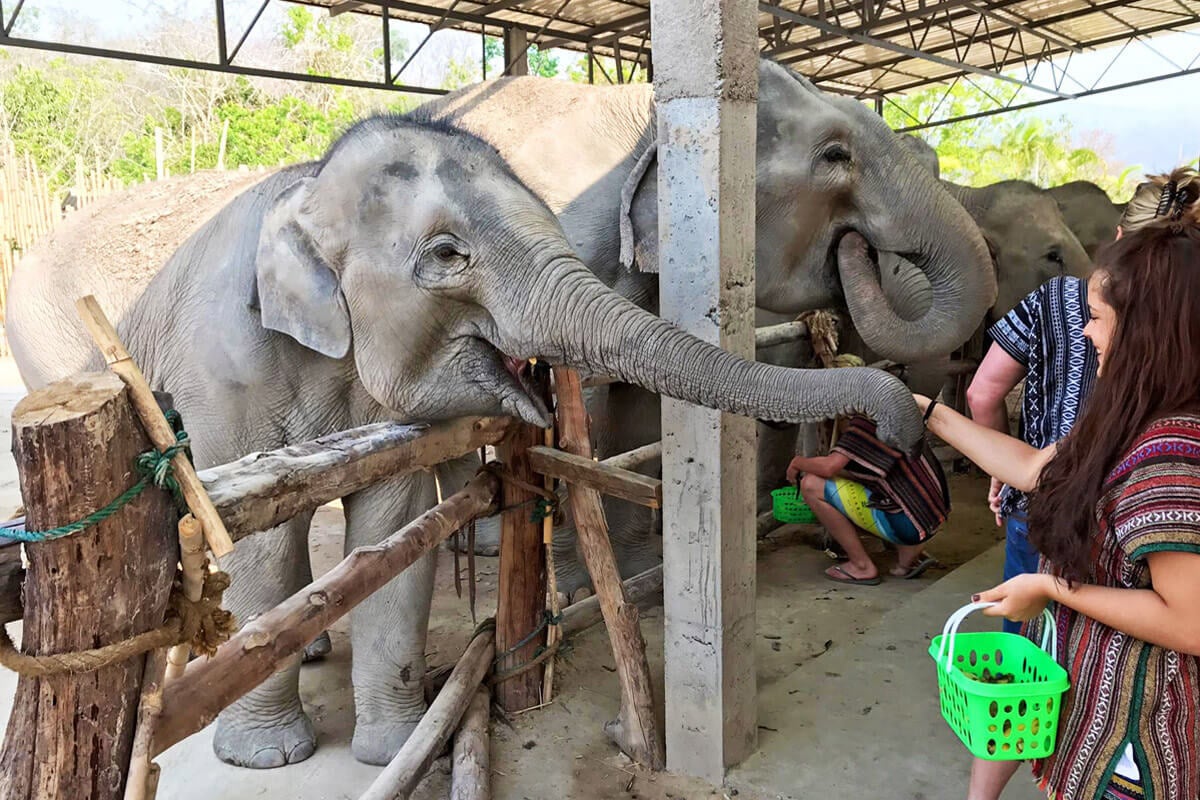
Volunteer Opportunities in Africa:
-
Reef Doctor – Madagascar – The Reef Doctor offers a valuable marine conservation opportunity. Working with the local fishing community, ensuring their projects are sustainable.
-
Mbwa Wa Africa – Tanzania – Mbwa Wa Africa is a small organization in Tanzania that focuses on serving widespread vaccinations and rescuing/re-homing dogs. They often appreciate volunteers to help out with day-to-day tasks and running the kennels.
-
FAME – Tanzania – FAME is an outpatient clinic in Tanzania that provides high-quality healthcare to under-resourced communities. They accept doctor and nurse volunteers to work alongside the local community.
Volunteer Opportunities in Asia:
-
Karenni Social Development Center – Thailand – A small community center based in Thailand, which focuses on teaching the community human rights, law and English. Volunteers teachers are highly needed.
-
The Wild Animal Rescue Foundation of Thailand (WARF) – WARF is one of Thailand’s leading animal welfare organizations. Volunteers can help with animal care, education and much more.
-
Spiti Ecosphere – India – Spiti Ecosphere is a conservation volunteer project. They focus on involving volunteers in a range of activities that can give back to the local environment in the region.
Volunteer Opportunities in the Americas:
-
The Seaver Foundation – Mexico – The Seaver Foundation offers opportunities to volunteer abroad with children. The foundation focuses on protecting the human rights of children in orphanages and also promoting ethical volunteering practices.
-
El Centro De La Nina Trabajadora (Center For The Working Girl) – Ecuador – This NGO focuses on the eradication of child labor, especially for girls. They have built a primary school, tutor center and more, and they often need volunteers to help with teaching.
-
Sprout – USA – Provides support for adults with disabilities or special needs. They often rely on international volunteers to help them.
Tip: Ben and Katie have had great experiences working as volunteers on organic farms around the world. As part of the WWOOFing program, they exchange their manual labor for room and board. A great way to travel on the cheap, too! Plus, this type of work typically doesn’t cross any ethical lines, so it’s an easy way to know you aren’t doing more harm than good.


Kirsten Carter is a solo female traveller who has been exploring the world since the age of 16. She has participated in all kinds of travel and is now an advocate for responsible tourism. Living in the heart of Tanzania where she runs her hostel, Rightminded Travelling, she tries to inspire people to travel ethically and responsibly through her blog and social media.
Interested in learning more about Responsible Travel?
We are passionate about traveling in a way that is ethical, sustainable and responsible. Visit our resources page on Responsible Tourism to learn more about how you can create a positive impact everywhere you travel! Or read some of our favorite articles on responsible travel below…
Save this article on Pinterest for later!
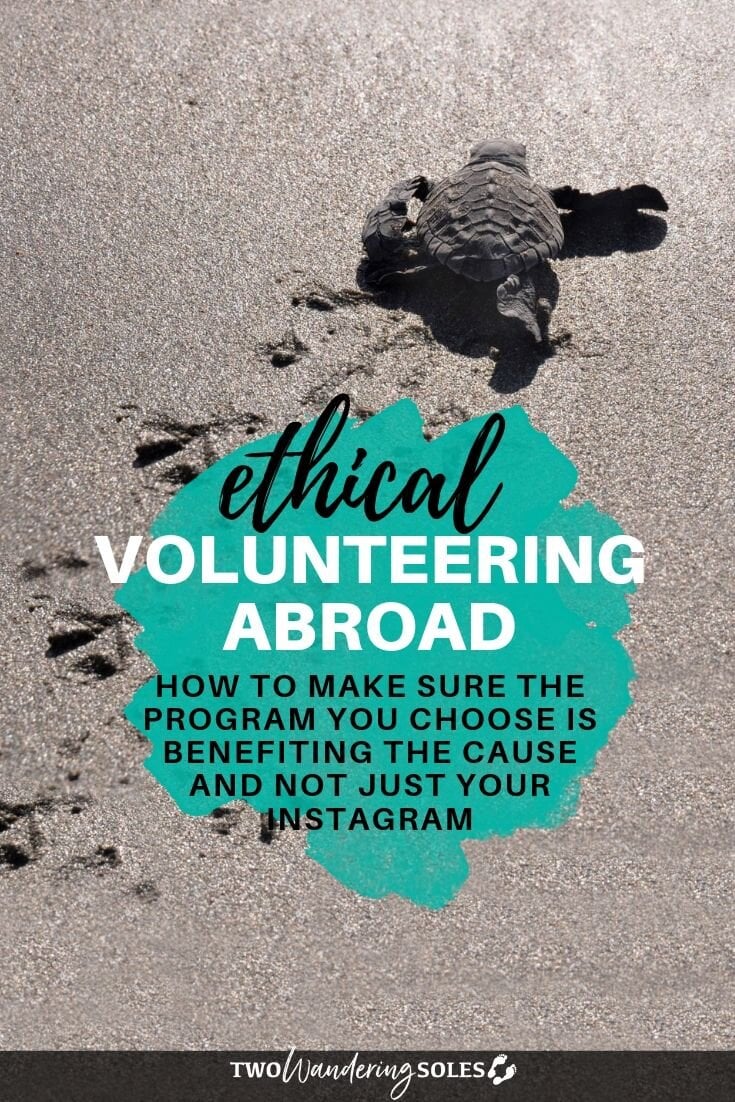



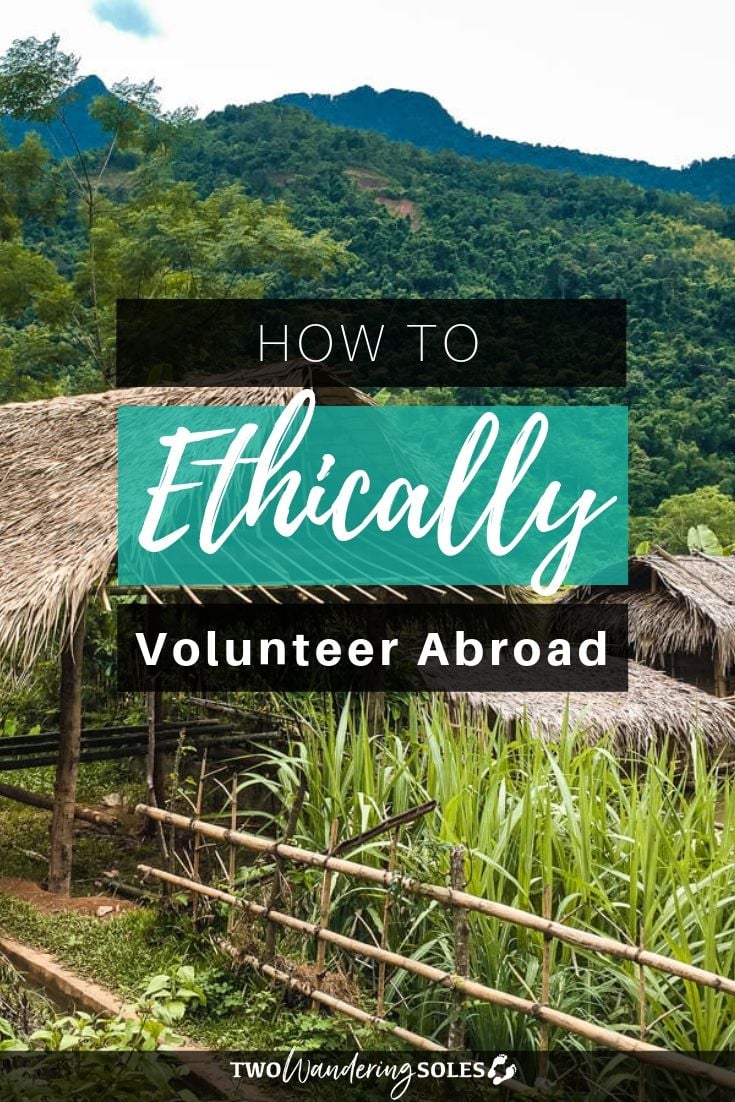



We want to hear from you!
Do you have experience volunteering abroad with an ethically run organization? What was your favorite experience?
Are you interested in volunteer travel and still have questions? Comment below and we’ll do our best to get back to you!

Many people are unaware that some volunteer opportunities are not beneficial towards the given environment. Thank you for sharing!
Loved reading your practical tips!!
We at Don Bosco India started our volunteer tourism program fairly recently.
I will be pleased if you can read and post your suggestions here: